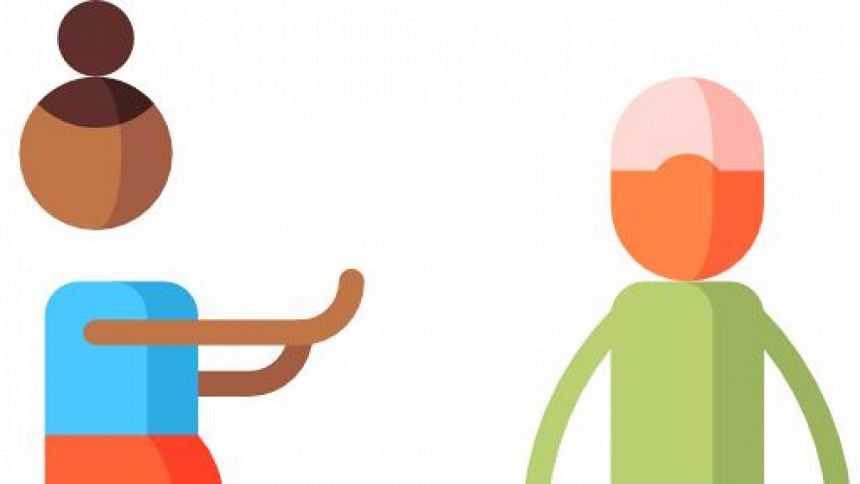Can you overcome rejection?

It is always difficult when someone turns you down and says 'no.' Be it a personal favour or a business pitch, it can be hard swallowing rejection. Sometimes, it is because we fear being rejected because of internal shame or embarrassment, or because of the way we were brought up, we sabotage our own relationships and opportunities which would be good for us. So, to learn how you can accept rejection, it might be worth trying to understand why you fear rejection in the first place.
Mostak Ahamed Imran, the first and only BAPT registered Play Therapist in Bangladesh, has been working as a counsellor since 2015 and has been in ShobThik's team for almost a year. He argues that when his clients struggle with rejection from their partners or families, it is strongly associated with wanting to be accepted and receiving approval. This kind of fear or desire originates from childhood incidents and from their upbringing.
Imran argues that there are multiple aspects which make rejection difficult to handle in our lives. It is quite common that parents in our society compare their children to others and give no affirmation. Doing so causes many to become habituated with "negative self-talk," feeling socially excluded, having pent-up anger which cannot be expressed, causing an eventual outburst, low self-esteem, lack of motivation, insomnia or oversleeping, self-harming tendencies and/or harming others.
He also talks about 'Avoidant Attachment Style,' a form of attachment in which children often do not find their primary caretaker when they need them the most. So, when they grow up, it affects their future attachments and relationships.
"They have an internal message unconsciously being recited in them, 'the world is not safe for me and no one will help me,' 'I can't trust anyone'" says Imran. Essentially, they themselves unconsciously reject themselves from love and affection as they grow up.
Similarly, as some individuals are accustomed to fending for themselves from a young age, when they do receive the support and love from someone else, they might become hyper focused to preserve the relationship by avoiding conflict, not rejecting the other person themselves, going out of their comfort zones, doing more than their capabilities and so on. This stems from the individual's fear of being rejected and so, they do whatever necessary to be accepted and preserve their support network.
Imran suggests going to therapy or counselling if someone struggles with rejection to an extent that it harms their mental and physical wellbeing, or even if one simply wants to learn how to handle rejection.
"Being aware, developing positive habits, reducing negative self-talk, practising assertive communications techniques, are few of the ways a therapist can guide you to handling rejection. In some cases, a therapist can play the role of a secure attachment base, through which one can manoeuvre through their fear of rejection," he explains.

 For all latest news, follow The Daily Star's Google News channel.
For all latest news, follow The Daily Star's Google News channel. 








Comments